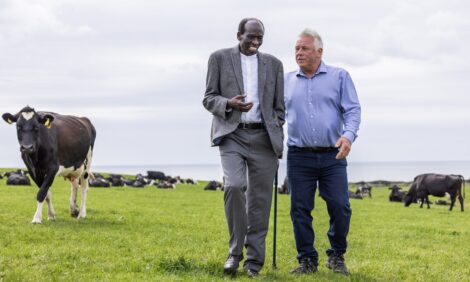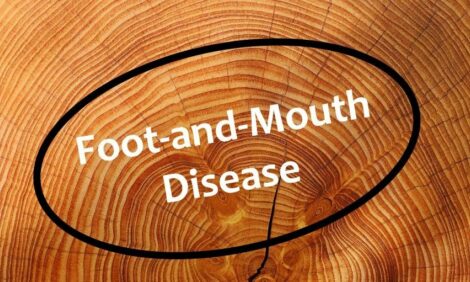



Effect of EU/ India FTA on India's Dairy Producers
ANALYSIS - Whilst increased dairy exports from the EU will benefit EU producers, little thought is given to how producers in importing countries will be affected. Sieta van Keimpema, Vice-President of the European Milk Board recently visited India where she spoke with many milk producers and street dealers about the impact the planned free trade agreement (FTA) between the EU and India will have on them.The purpose of the trip was to speak with Indian milk producers about the European dairy sector. She said that the situation of Indian milk producers will be heavily affected if the EU is given the right to export dairy products to India duty free.
In Horlsey Hills, Bangalore, Ms van Kiempema said that dairy producers were experiencing similar problems to European producers. The price paid to producers didn't cover production costs, producers had little to no influence on the market and the government is looking to boost production.
She also noted that their problems with Holstein-Friesian cows were the same - mastitis and fertility being huge problems. The cost of treating these problems is expensive, a cost that cannot be afforded.
Whilst Holstein-Friesians produce a much higher yield than local cows, they do not cope with the heat well.
When Ms van Kiempema asked why producers did not buy local cows, which she felt would be more sustainable, producers told her that they must take out loans to purchase cattle, and loans are only approved for Holstein-Friesians as they produce more milk, and so earn more money.
The milk producers invited Ms van Kiempema to one of the village to see how cows are milked and to visit the milk collection point. She said that cows are simply milked on the road, the milk is then driven to a collection point, analysed and taken the next day, along with the morning milk, to another village where there is a cooling tank. Here, too, the milk is re-tested before being put into a 1,000 litre tank.
Milk producers are paid by quality and fat content. The milk price fluctuates between 17 and 20 rupees (26 and 30 euro cents) a litre, which Ms van Kiempema says is not much less than the EU average farmgate price for 3.5/ 3.6 per cent fat.
Despite encouragement by the Indian government, there are hardly any co-operatives in India. Recent government changes mean that private dairies are now given tax advantages over co-operatives. Ms van Kiempema said that this change in policy could have had something to do with the fact that the wife of one of the Minsters owns a private dairy.
Ms van Kiempema said that many Indians have become entirely dependent on milk production. Other industries that once supported local communities, such as silk production, have collapsed due to the establishment of free trade agreements.
The silk production sector was taken over completely by the Chinese once an FTA was established.
With this in mind, Ms van Kiempema said that the fear felt by Indian producers with regard to EU milk exports is understandable. For millions of people with no land the loss of milk production means they will be forced to move to the towns and cities.
But, she said, that there have been no jobs in the urban areas for a long time, which is why millions of Indians have to beg for a living and lead a degrading life in the slums.
The reason for the FTA discussion, said Mr van Kiempema, is that EU officials and Commissioners claim that India is now a developed country that no longer needs to be protected by import duties. Because of this they believe that India should open up its markets to European products. But Miss van Kiempema says the reality is different: hundreds of millions of Indians live on less than one euro a day.
Ms van Kiempema concluded her trip report saying that European prosperity will cost lives. "I very much hope that the sacred cow that is called "free trade" does not turn out to be a trojan horse for the Indians."



